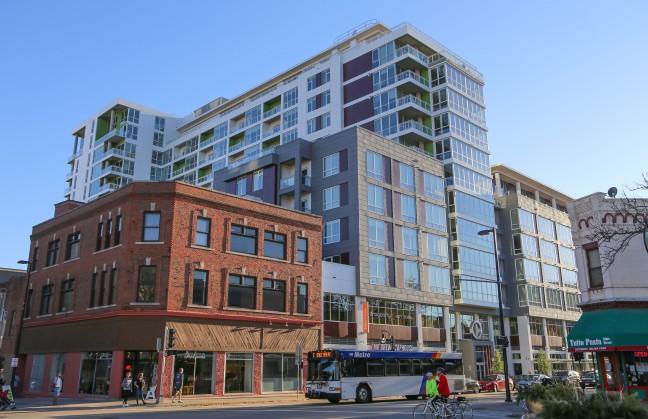Refugees, among other groups, are finding it harder to resettle in Madison because of the city’s lack of affordable housing — and with only two refugee settlement programs left in Madison, competition for available spaces is making housing increasingly more expensive for those who need it the most, refugee organizations have said.
Ken Baun and his wife founded Open Doors for Refugees in 2016, a non-profit that helps resettle and welcome refugees in Madison. He explained that his organization works closely with the other resettlement program in Madison, Jewish Social Services, to provide housing and other essential services, such as English lessons and transportation.
JSS and Open Doors are now the only refugee resettlement programs in Madison though, as Lutheran Social Services was forced to close their resettlement program in early January due to a lack of affordable housing. But the organization will provide services for refugees currently living in Madison for the next five years, Mary Flynn, the refugee resettlement manager at LSS, said.
Madison recommends $4.5 million for affordable housing developments
Flynn said until about five years ago finding affordable housing in Madison was fairly easy, but the recent loss of housing options has made Madison’s housing market more competitive.
“We’re all competing for the same spaces,” Flynn said. “As housing markets have changed in Madison, the availability of more affordable housing to lower-income people has really been a challenge.”
Baun agreed that finding affordable housing is the biggest challenge for refugee resettlement. But he said finding such housing is easier if there is support from the community.
Baun explained that Open Doors got its start after his wife hosted an event to bring awareness to the Syrian refugee crisis, and many attendees wanted to know how they could get involved to help. Since then, Open Doors has developed a strong relationship with JSS. Together, the two organizations have been able to garner community support and grow their success.
Overdue: As the city expands affordable housing, barriers for those in need persist
“Certainly finding affordable housing is a challenge, but it’s not an insurmountable challenge,” Baun said. “Working hand in hand with JSS, we’ve always been able to find a place.”
While refugees arrive with documented legal status, many do not have rental history, credit history, work history or even a social security number until three or four weeks after their arrival, Flynn explained — all of which greatly limits the number of landlords who will rent to them.
Furthermore, many refugees do not have drivers licenses when they arrive, which makes public transportation essential, Flynn said. Milwaukee has been more successful in refugee resettlement as their affordable housing options, unlike Madison’s, are connected by a more cohesive mass transit system, Flynn said.
To address this specific issue, Open Doors provides driving lessons to refugees, Baun said.
UW hosts international conference on refugees, immigrants in schools
“Their certificates, their training, their credentials aren’t worth very much here,” Baun said. “People are starting over.”
Open Doors and LSS also provide job placement for refugees, although finding refugees employment is rarely an issue, as employers frequently reach out to LSS to ask if any of their refugees need work, Baun and Flynn said.
Baun said finding sustainable work is the real challenge because many refugees who earn the minimum wage have to work multiple jobs to keep up with Madison’s rent. Flynn said Madison is becoming more competitive, which encourages higher rents. Because refugees arrive in the U.S. with very few assets, they are often unable to participate in the competitive market until they have lived in the U.S for an extended period of time.
Baun said excluding refugees from the community in this way is detrimental because of the diversity they bring.
“Refugees and immigrants bring a diversity here that I think makes our community alive,” Baun said.
Baun said neighborhoods need to organize and make things more accessible to refugees. At a citywide level, he said Madison needs to develop more welcoming programs and provide bilingual support.
“If we can find safe, affordable and adequate housing, we can do almost anything,” Flynn said. “But without that very fundamental basic shelter need, we’re restrained from doing more, and that really was the crux of our closing.”

















